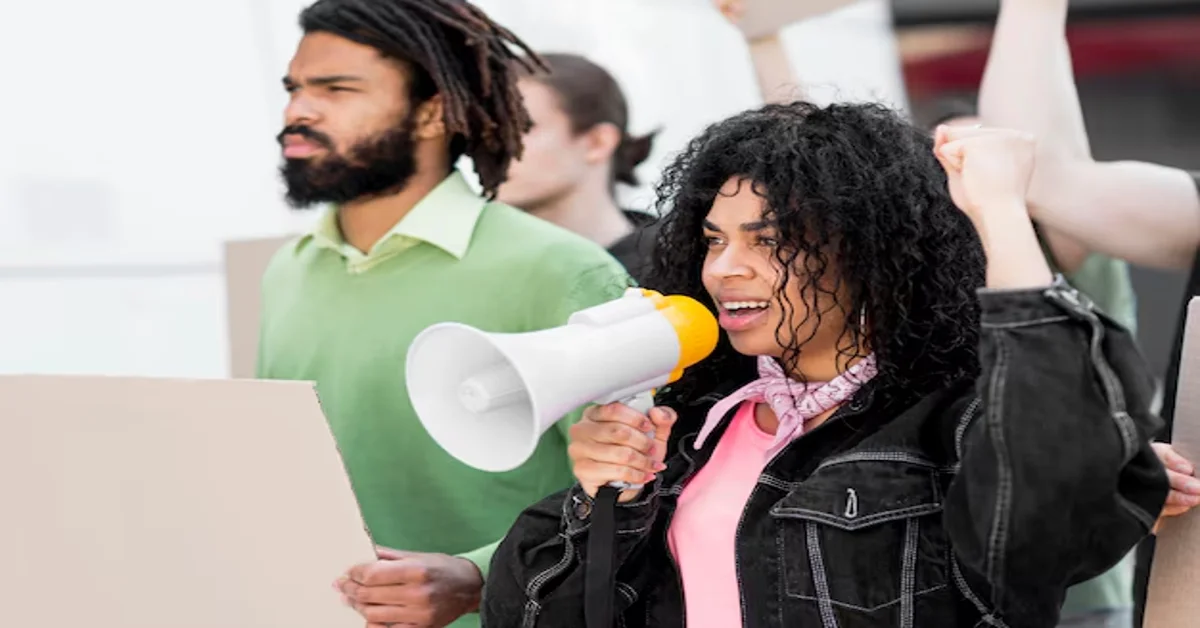In the world of retail giants, few names evoke as much recognition as Walmart. With millions of employees and customers, it’s a hub for everyday transactions and interactions. However, behind the scenes lies a complex dynamic that can sometimes turn tumultuous. Recently, headlines have erupted over the Walmart Employee Fired who dared to speak out against alleged injustices within the workplace.
This incident has sparked conversations about power dynamics in large corporations and what it truly means to stand up for one’s beliefs. The story doesn’t just end with an employee’s termination; it unveils layers of bias, discrimination claims, and community outrage. As we delve into this compelling narrative, we’ll explore all aspects— from legal implications to personal accounts— illustrating why this case resonates far beyond just one individual’s experience at Walmart.
Join us on this journey as we uncover the story behind the headlines surrounding this controversial dismissal and its broader impact on both workers’ rights and corporate responsibility.
Allegations of Bias and Discrimination
The recent Walmart Employee Fired has sparked intense discussions about bias and discrimination in the workplace. Allegations have emerged, suggesting that the firing may not be justifiable under employment law. These claims highlight concerns regarding employees’ rights when they speak out against perceived injustices.
From a legal perspective, employees are often protected from retaliation if they voice complaints related to discriminatory practices. This protection is enshrined in various labor laws aimed at fostering an equitable work environment. If it can be demonstrated that the employee’s dismissal was linked to their allegations of bias, legal ramifications could follow for Walmart.
Moreover, the notion of “at-will” employment complicates matters further. While many employers hold this right to terminate without cause, exceptions exist—particularly when discrimination or retaliation comes into play. Courts have historically upheld cases where wrongful termination coincides with whistleblower protections.
Additionally, industry regulations require companies like Walmart to conduct thorough investigations into allegations raised by employees before taking disciplinary actions. Failure to adhere to these protocols could lead not only to public backlash but also potential lawsuits.
As more details emerge about this case, it’s essential for both employees and employers alike to understand their rights and responsibilities within such complex situations. The implications extend beyond one individual; they touch on broader themes of corporate accountability and workforce morale.
Employee’s Side of the Story
The employee, whose name has been withheld for privacy reasons, shared a gripping account of events leading up to their termination. They recounted several instances where they felt compelled to speak out against workplace practices that they believed were unjust and discriminatory. These weren’t isolated incidents; the employee described a culture that seemed resistant to change.
Feeling ignored by management when raising concerns created an atmosphere of frustration. The employee had hoped to bring attention to issues affecting not only themselves but also their coworkers. Their intentions were rooted in wanting better working conditions and fair treatment within the company.
When discussions turned public on social media platforms, it escalated quickly. Colleagues expressed solidarity, amplifying the message about inequities faced by employees at Walmart. However, this newfound visibility caught the attention of corporate leaders who viewed these actions as detrimental.
With mounting pressure from above, the situation took a drastic turn one fateful day. The employee was called into HR’s office with little warning and informed that their employment would be terminated immediately due to “breaching company policy.” This left them stunned and questioning what policies had truly been violated.
Despite feeling wronged, there remains hope among supporters for positive changes in corporate accountability moving forward. Many believe stories like this should inspire others to voice concerns without fear of retribution or backlash.
Impact on the Community
Walmart Employee Fired sparked a wave of reactions throughout the community. Many residents expressed outrage over what they perceived as an unjust decision, rallying behind the former employee. Social media platforms became a battleground for opinions, with hashtags dedicated to advocating for worker rights trending rapidly.
Local advocacy groups quickly took notice of the situation. They organized protests outside Walmart locations, demanding accountability from corporate leaders. These demonstrations attracted attention and ignited conversations about workplace policies and treatment of employees within large corporations.
Many customers voiced their frustrations during their shopping trips, questioning whether they would continue supporting a company that allegedly silenced its workers. Conversations in local cafes featured heated discussions surrounding labor rights and fair treatment at work.
Local news outlets picked up on the story as well, amplifying voices from both sides. Interviews with fellow employees highlighted feelings of fear regarding job security when speaking out against management practices. This led to further scrutiny surrounding Walmart’s workplace culture.
As word spread beyond local borders, national organizations began to weigh in on this high-profile case. Advocates called it emblematic of larger issues facing countless workers across various sectors today—issues that demand urgent attention and resolution.
Legal Implications
Walmart Employee Fired for speaking out raises several legal implications that cannot be overlooked. Employees in the United States are generally protected under various employment laws, including those prohibiting retaliation against whistleblowers. This creates a complex landscape where the reasons behind an Walmart Employee Fired can lead to potential legal battles.
One key aspect involves workplace discrimination laws. If the employee’s allegations involve bias or unfair treatment based on race, gender, or other protected characteristics, they may have grounds for a lawsuit. Legal experts often emphasize that such claims must be thoroughly investigated by both internal and external entities.
Another important factor is freedom of speech. While employers have rights over their work environments, employees also possess certain liberties to express concerns about workplace conditions or practices without fear of retribution. The balance between these rights can become contentious when circumstances escalate.
Additionally, labor unions and advocacy groups often step in during cases like this one to provide support and guidance through legal channels. Their involvement can add pressure on corporations to adhere more closely to ethical standards and protect workers’ rights.
Public perception plays a significant role in these situations as well. Negative media coverage could prompt investigations from regulatory bodies or even influence changes within company policies regarding employee treatment and communication methods moving forward.
Conclusion:
The story of the Walmart Employee Fired who was fired for speaking out raises significant questions about workplace rights and corporate accountability. It highlights the complexities surrounding issues like bias, discrimination, and free speech within large organizations.
As communities rally around those who feel unheard or marginalized in their workplaces, this incident serves as a catalyst for broader discussions on labor rights and protections. The legal ramifications could potentially reshape how employers handle employee grievances moving forward.
This situation underscores the importance of standing up against perceived injustices while navigating the risks associated with such actions. As more individuals share their stories, it may encourage others to voice their concerns without fear of retaliation. Each narrative contributes to an evolving dialogue about fairness in employment practices at major corporations like Walmart.









